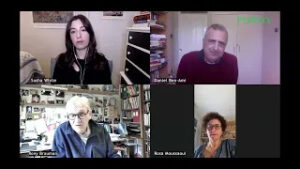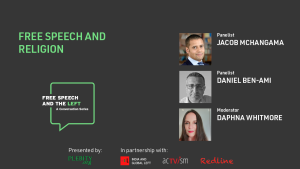
Masthead from New Dawn Magazine, New Zealand
This article was originally published on Redline.
Stuff reports today: “Nationwide bookstore Whitcoulls is selling a magazine peddling a number of anti-vax conspiracies and insinuating the Christchurch mosque terror attack was a “false flag” operation.
The Lambton Quay store in Wellington had copies of two issues of New Dawn magazine for sale this week. It was also spotted in another Wellington store, Johnsonville, and at New Lynn in West Auckland.”
Kate Hannah, director of The Disinformation Project, a research group monitoring Covid-19 disinformation strongly suggested that the magazine shouldn’t be available in the store. She said some of the commentary in New Dawn was borderline in legality and that the article on the mosque attacks should give pause to whoever was doing the buying and distribution for Whitcoulls.
The Disinformation Project have obviously studied New Dawn’s content. So if it hasn’t hurt the Disinformation Project, why is it not ok for the rest of us to read it?
“The content was specifically harmful to the Muslim community, the wider Christchurch community, and to social cohesion in New Zealand, since denial of the attacks or denial of the responsibility of the terrorist perpetuated ongoing trauma for those affected”, Kate Hannah said.
If they sought out and purchased the magazine, people from the Muslim community might well be offended to read New Dawn’s take on the atrocity. Claiming the article specifically harms the wider Christchurch community, and social cohesion in New Zealand is pushing it.
The fact is, offensive and crazy theories exist. Removing their written appearance doesn’t make such ideas go away. If anything, censorship gives offensive ideas undeserved status. Calling for its censorship makes material more special and interesting. Dragged out and spread under the light, untenable views can be seen for what they are. But the Disinformation Project appears to see problems beyond that.
“People who see and or consume such content must understand that there are larger and more dark agendas present, particularly the Russian connections, which aim to destabilise liberal democracy,” Kate Hannah said. “Dark agendas with Russian connections” sounds like nothing so much as a conspiracy theory itself. But liberal democracy already has real stabilisation problems. Social cohesion in New Zealand isn’t threatened by little right wing magazines but by the fast growing gap between rich and poor. The Disinformation Project could maybe research and expose the false notion that capitalism is a fair system for the workers who are denied a fair share of the wealth they produce.



